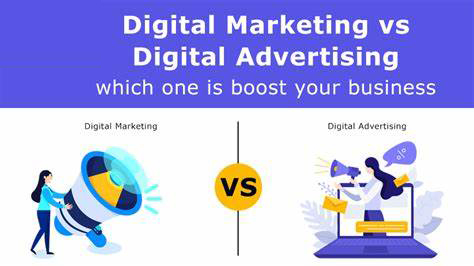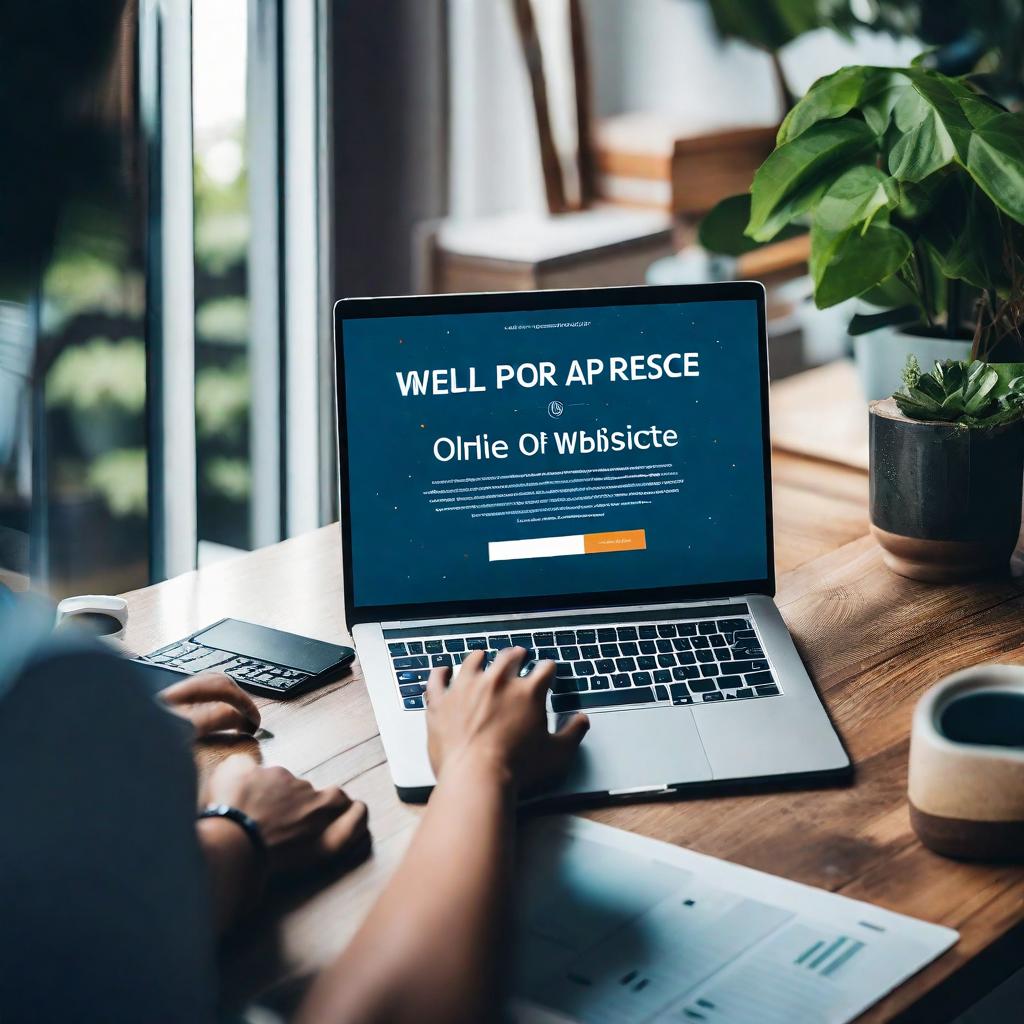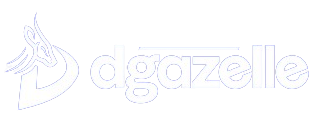Guarding Your Digital Fort: 8 Website Security Tips to Ward Off Hackers

Introduction Imagine your SME without a website—a digital fortress that guards your business’s valuable information. In today’s cyber-centric world, this vulnerability is akin to leaving the doors to your physical store wide open at night. Your valuable data, customer information, and reputation are all at risk, and it’s high time you fortified your digital defenses. In this article, we’re going to explore 8 website security tips to help safeguard your online presence from the relentless hackers and cyber threats that lurk in the digital shadows. We’ll equip you with the knowledge and tools to protect your business and its integrity. By the end of this read, you’ll understand the importance of website security as a formidable digital fort against the onslaught of cyber threats. Let’s embark on the journey to fortify your digital presence. I. Understanding the Stakes of Website Security Before we dive into the website security tips, it’s crucial to comprehend the stakes. In the digital realm, your website acts as a front door to your business. It holds sensitive customer data, financial information, and proprietary business details. Hackers are not only after your data but also your customers’ trust. A data breach can tarnish your reputation, result in financial losses, and even lead to legal consequences. It’s vital to protect this digital fortress with the utmost care. II. Regular Software Updates Hackers are always on the lookout for vulnerabilities in software, which is why it’s essential to keep all your website software, including the Content Management System (CMS), plugins, and themes, up to date. Software developers release updates to patch security holes and improve overall stability. Failing to update your software can leave your website susceptible to known exploits. III. Strong Password Policies Inadequate or easily guessable passwords are one of the most common weaknesses in website security. Ensure that you and your team use strong, complex passwords. A strong password includes a combination of upper and lower-case letters, numbers, and special characters. Implement two-factor authentication (2FA) wherever possible to add an extra layer of security. IV. Web Application Firewall (WAF) A Web Application Firewall (WAF) acts as a barrier between your website and malicious traffic. It filters and blocks harmful requests, such as SQL injection attempts and cross-site scripting attacks. A WAF can provide an additional layer of protection by identifying and blocking common website threats. Ready to fortify your digital fortress with a robust and secure website? Our team specializes in building secure websites for SMEs. Reach out to discuss how we can help you enhance your online security. V. Regular Backups Regular backups of your website data are a crucial insurance policy against cyberattacks. If your website is compromised or goes down due to a cyber-incident, backups can help you restore your site to a previous, uninfected state. Ensure that your backups are stored securely, preferably off-site or in a remote location. VI. Security Plugins For websites built on platforms like WordPress, there are several security plugins available. These plugins can bolster your website’s defenses by providing features such as malware scanning, firewall protection, and login attempt monitoring. Explore the best security plugins for your specific CMS and implement them to enhance your website’s security. VII. SSL Certificate An SSL (Secure Sockets Layer) certificate encrypts the data exchanged between your website and its visitors. It not only ensures secure data transmission but also boosts your website’s credibility, as browsers now label non-secure websites as potentially unsafe. An SSL certificate is essential for protecting user data, such as login credentials and payment information. VIII. Regular Security Audits Regular security audits are like a check-up for your website’s safety. They involve evaluating your website for vulnerabilities, testing for potential threats, and identifying weak points. Consider hiring a professional security firm to conduct these audits regularly to ensure your website remains secure. IX. Employee Training Your website’s security is only as strong as your weakest link, and often, that can be an unwitting employee. Training your staff to recognize phishing attempts, suspicious email attachments, and security best practices is crucial. Human error is one of the most common causes of security breaches, and educating your team can help prevent costly mistakes. Interested in a comprehensive website security solution for your SME? Our experts can help you build a secure website that guards your digital fortress. Reach out to discuss how we can fortify your online presence. Conclusion In an era where digital threats are ever-present, fortifying your website’s security is not a luxury but a necessity. Neglecting website security can have severe consequences, from data breaches to loss of customer trust. By implementing the 8 website security tips outlined in this article, you can enhance your SME’s online defenses and ensure your digital fortress remains impenetrable. Don’t leave your digital presence vulnerable to the whims of hackers. Reach out to us today to discuss how we can help you build a compelling and secure website that stands as an unyielding guardian of your business’s online integrity. The journey to a fortified digital presence begins here. Secure your future – and your customers’ trust – with a powerful website that can withstand the onslaught of cyber threats
4 Compelling Reasons Why Your SME in Nigeria Needs a Powerful Website

Introduction Picture this: you’re the owner of a Small and Medium-sized Enterprise in Nigeria. You’ve built a reputable business with quality products and services, a loyal local customer base, and a strong presence in your community. But, here’s the catch: you don’t have a website. In today’s digital age, that’s like having a store but not turning on the lights. Are you ready to unlock the true potential of your SME and catapult it into the digital era? If the lack of a website is holding you back, you’re not alone, in this article, we’re going to explore four compelling reasons why your Nigerian SME desperately needs a powerful website to thrive in the 21st century. By the end of this read, you’ll understand the vital role a website plays in your business’s journey. Don’t let your competition leave you in the dust; let’s dive into the world of possibilities together. I. Expanding Your Market Reach One of the most compelling reasons to have a powerful website for your SME in Nigeria is the potential to expand your market reach. Without a website, your business is limited to its immediate physical location, and your reach is restricted to those who happen to pass by or hear about you through word of mouth. With a website, the world becomes your oyster. You can showcase your products and services to a global audience. Whether you’re selling handmade crafts, delicious local delicacies, or offering specialized services, customers are showing increasing interest in online marketplace and a website allows these customers from across Nigeria and beyond to discover your business. This, in turn, can lead to increased sales, revenue, and growth. II. Building Credibility and Trust In the digital age, a well-designed and informative website is synonymous with professionalism. It’s your virtual business card and a 24/7 sales representative. Potential customers often turn to the internet first when seeking products or services, and a powerful website can be the difference between building credibility and being dismissed as unprofessional. A website allows you to convey essential information about your SME, such as your history, mission, values, and customer testimonials. It’s a platform to showcase your expertise, establish trust with your audience, and demonstrate that you’re a legitimate and reliable business. III. Marketing and Promotion Marketing your SME effectively is crucial to attracting and retaining customers. A powerful website is a central hub for all your digital marketing efforts. Here’s how it can transform your marketing strategy: Content Marketing: Through a blog or articles section on your website, you can provide valuable content to your audience. This not only helps educate your customers but also positions your business as an authority in your industry. This, in turn, can drive organic traffic to your website. Email Marketing: With a website, you can collect email addresses and build a list of engaged customers. You can send them newsletters, special promotions, and updates to keep them informed and connected to your business. Social Media Integration: A website can seamlessly integrate with your social media platforms. This allows you to share content and updates with your social media audience while directing them back to your website for more information and conversions. SEO (Search Engine Optimization): A well-optimized website is more likely to appear in search engine results, making it easier for potential customers to find you online. This is a game-changer in Nigeria’s competitive business landscape. Ready to supercharge your marketing and promotion efforts? We can help you create a powerful website that serves as the cornerstone of your digital marketing strategy. Contact us to get started. IV. Improved Customer Engagement Engaging with your audience is crucial for building strong customer relationships. A powerful website offers various tools and features that enhance customer engagement: Contact Forms: Customers can easily get in touch with you through contact forms on your website. Whether they have questions, requests, or feedback, a website ensures that their messages are seen and addressed promptly. E-commerce and Online Sales: If you offer products, a website can facilitate online sales, providing convenience to your customers. They can browse your offerings, make purchases, and have products delivered to their doorstep. Interactive Features: Interactive elements like quizzes, surveys, and chat support can engage visitors and encourage them to stay longer on your website, increasing the chances of conversion. Content Sharing: Your website can act as a content hub, where you share valuable resources, guides, and tips related to your industry. This can help educate your audience and keep them coming back for more. Call to Action: Ready to boost customer engagement and build stronger relationships? Let us help you create a powerful website that fosters meaningful interactions with your audience. Contact us to get started. Conclusion Your SME in Nigeria deserves every opportunity to thrive and succeed in today’s digital world. A powerful website can be the catalyst for achieving your business goals. It expands your market reach, builds credibility and trust, transforms your marketing and promotion, and improves customer engagement – all crucial elements for success. Don’t let the absence of a website hold your business back. Reach out to us today to discuss how we can help you create a powerful website that’s tailored to the unique needs of your Nigerian SME. Your journey to a compelling online presence begins here. Don’t miss out on the opportunities waiting for you – seize them with a powerful website!
Cracking the Code to Online Success: Digital Marketing vs. Digital Advertising for Nigerian Businesses

Digital advertising is a subset of digital marketing and focuses on paid promotions to reach your audience.
Transforming Your Online Presence: The Power of a Well-Planned Website Strategy for Success

Introduction In the digital age, your online presence can make or break your small to medium-sized enterprise (SME). Potential customers turn to the internet first when seeking products and services, and if you don’t have a well-crafted online presence, you’re missing out on a world of opportunities. Whether you’re a startup or a well-established SME owner, the absence of a website is a problem that can severely impact your business’s growth and success.But fret not, for in this article, we will unveil the transformative benefits of implementing a well-planned website strategy for SME business owners. By the end of this read, you’ll understand the pivotal role a website plays in your business’s journey. Enhanced Visibility and Credibility The digital landscape is akin to a crowded marketplace. To stand out in this ever-evolving digital realm, a well-planned website is your ticket to enhanced visibility and credibility. When potential customers search for your services online, a well-optimized website ensures you’re on their radar. Without it, you remain invisible in a sea of competitors.A well-designed website gives your SME a professional edge, instilling trust in potential customers. They are more likely to do business with a company that maintains an updated, aesthetically pleasing, and informative online presence. A website communicates that you’re a credible and serious player in your industry. Accessibility One of the most significant advantages of having a website is that it never sleeps. Your website is accessible to potential customers round the clock, making it a valuable asset that markets your business even when you’re not working. No other marketing tool provides this level of continuous accessibility.With a website, you can engage with your audience, answer inquiries, and provide information anytime, anywhere. This convenience greatly enhances customer satisfaction and, consequently, your business’s reputation. Cost-Effective Marketing Traditional marketing methods often come with a hefty price tag, making it difficult for SMEs with limited budgets to compete. A well-planned website strategy allows you to market your business effectively without breaking the bank. It is a cost-effective way to reach a global audience.With tools like search engine optimization (SEO) and social media integration, you can target your audience with precision, ensuring that your marketing efforts are efficient and results-driven. In the long run, the returns on your website investment far exceed its initial cost. Targeted Marketing A well-planned website strategy empowers you to employ targeted marketing techniques. Through various analytics and tracking tools, you can gather valuable data on your website visitors, including their demographics, preferences, and behaviors. Armed with this information, you can tailor your marketing strategies to reach your ideal customer base more effectively. Competitive Advantage In today’s competitive business landscape, staying ahead of the curve is vital. A well-structured website gives you a competitive edge. Your competitors are likely already online, and if you’re not, you’re falling behind. A website allows you to showcase your unique selling propositions and set yourself apart from the competition.Having a website that reflects your brand’s personality, values, and strengths can help you stand out in the digital crowd, making it easier for potential customers to choose you over your rivals. Expanded Market Reach Gone are the days when SMEs were limited to serving local markets. A well-planned website strategy can catapult your business onto the global stage. With a website, you can reach customers beyond geographical boundaries, enabling you to tap into new markets and unlock untapped potential.Having a website also makes it easier to explore e-commerce opportunities, diversify your customer base, and take your business to new heights. Showcasing Your Products and Services Your website is your digital storefront. It serves as a comprehensive catalog of your products and services. You can showcase your offerings with high-quality images, detailed descriptions, pricing, and customer reviews. This not only informs potential customers but also streamlines their decision-making process.Moreover, a website can serve as a powerful content marketing platform where you can educate your audience about your products, industry trends, and more, establishing your business as an authority in your field. Seamless Customer Engagement A website is a hub for customer engagement. It offers various features like contact forms, chat support, and email integration, which facilitate communication with your audience. This direct line of communication is invaluable for addressing customer inquiries, concerns, and feedback promptly.Customer engagement through your website creates a sense of community and loyalty, fostering long-term relationships that can lead to repeat business and word-of-mouth recommendations. Data Analytics for Informed Decisions A well-planned website strategy is not just about creating a digital presence; it’s about harnessing the power of data. Websites offer a wealth of data on user behavior, conversion rates, and more. This information allows you to make informed decisions, refine your marketing strategies, and continually improve your online presence.Analyzing website data can help you identify what’s working and what needs adjustment, ensuring that your online strategy remains dynamic and results-driven. Adaptability and Scalability As your SME grows, your website can grow with it. It’s highly adaptable and scalable, allowing you to add new features, expand your product or service offerings, or even rebrand your business seamlessly. Your website can evolve in sync with your business, saving you time and resources in the long run. Conclusion In today’s digital age, your online presence is a business asset as vital as any other. It can determine your success or failure, especially for SME business owners. The benefits of a well-planned website strategy are numerous and transformative. From enhanced visibility and credibility to 24/7 accessibility and cost-effective marketing, a website offers a plethora of advantages.But why stop at understanding the benefits? We’re excited to offer you an enticing opportunity to transform your online presence. Our expert team is here to build a compelling website for your SME, tailored to your unique needs and goals. Don’t let your competition steal the spotlight – take action and secure your place in the digital marketplace.
5 Ways to Know You are about to Buy a Bad Domain

One reason many online businesses fail is they have poor domains. However, you’ve done some research and found one you really like, and you believe it’s a good fit for your company. However, are you sure you are not attempting to buy a bad domain? Understanding the concept of a “good domain” will save you time and money – whether you are building a site for yourself, your business, or buying domains for investment. In fact, Bad domains can be disguised as premium or high-value domains. And, if a domain does not have high potential or is a scam, it can waste your time and money. In this article, I’ll explain how to know you are about to buy a bad domain. What really is a bad domain? When you take your physical business online, you want to make sure you will not waste your resources by choosing a domain name that is harmful to your website. A bad domain is any website with a bad reputation. A bad domain is a website that sells counterfeit goods, such as counterfeit designer clothes or drugs. These sites are usually shut down by authorities because they’re breaking the law and harming consumers by selling unsafe products at inflated prices. A bad domain is a domain that has been registered for a specific purpose. These domains are typically purchased, or even created, to mislead search engines and visitors. A bad domain isn’t necessarily one that’s broken or poorly designed though. A bad domain typically mimics the branding of a legitimate company or website. They may be used to trick users into believing they are on the real website and steal their information, such as passwords and credit card details. Generally, a bad domain is a domain that has already had any of the following happen to it: How to Know You are about to Buy a Bad Domain How do you know you are about to buy a bad domain name. Here are 5 ways to know a scam before you buy a bad domain name. 1. You are about to buy a bad domain if it has zero results in Google’s index In most cases, bad domains have no results in Google’s index. To see if a domain is indexed, type it into Google and see if the results are from your site. If you search for the website’s name and get no results, this is a huge red flag. It means that the domain isn’t being used by anyone else and hasn’t been registered in years. This is bad news because it means you have a low chance of ranking high on Google when people search for your brand name. However, if it is a new domain, you may want to snatch it up immediately, so you can begin an SEO campaign from scratch. 2. You are about to buy a bad domain if you can’t find the domain owner’s email address or contact info If you can’t find a way to contact the domain’s owner, it means you have no way of verifying that the person you’re dealing with is who they claim to be. This is especially important when purchasing domains from a third party online. Always request contact information and ensure that it matches what is available on WHOIS records for the domain name. If not, contact them via Facebook or LinkedIn to confirm their identity before purchasing anything from them. 3. You are about to buy a bad domain if it contains unrecognizable domain extension If you see a domain with an unrecognizable extension, such as .biz or .info, that is a bad sign. Those are generic top-level domains (gTLDs) and should not be used for anything serious. The top-level domain (TLD) is the last part of the URL after the last period. TLDs include .com, .net, .org, .info and others. The most common TLDs are .com and .net. However, there are also many unrecognizable TLDs that can make it difficult for visitors or search engines to find your website. Some examples of these types of domains include: mywebsite.biz. 4. You are about to buy a bad domain if the domain suffers from SEO penalties A penalty is a Google algorithm designed to detect websites that attempt to game the system. One of the most important things to understand is that if the domain suffers from SEO penalties, you are about to purchase a bad domain. It is not just one thing that makes a domain bad; it is a combination of factors. The first thing you should do is type “site:” into Google. This will display all of your site’s listings. These penalties are the result of SEO spammers who create sites with keyword-rich content and backlinks in order to rank for specific search terms. SEO penalties can be temporary or permanent, and they can have an impact on your website’s rankings or even bring it down entirely. 5. You are about to buy a bad domain if the domain name has a lot of words and hard to pronounce A bad domain name is one that appears to have been made up on the spot, has incorrect spelling, or is simply unappealing. You’ve probably heard the phrase “keep it short and simple.” This also applies to domain names. If your domain name contains too many words or is too long, it will be less appealing to potential buyers. It also makes it more difficult for people to remember. Furthermore, if you want a word with multiple meanings, consider including more descriptive words so that buyers can easily understand what your website is about. Avoid choosing a domain name that is difficult to pronounce or spell correctly, as this will make it difficult for your ideal client to remember and may discourage them from purchasing from you in the future. For example, if someone cannot remember your website address or how to spell it correctly, they will most likely abandon their purchase or go elsewhere.
5 Things You Need to Know Before You Design a Great Website

If you’re looking to build up your online presence, you’ll want to give some consideration to building a great website. A new website can be a powerful tool for meeting your goals and improving your company’s image.When designing or building a website, whether for your business or for a personal project, you must first plan everything out. So, before you think about how to design a great website, make sure you’ve checked these five items. You’ll be happy you did! What defines a great website? Many websites are created with a specific purpose in mind. They enable you to buy things, read about products, communicate with others, and obtain information. But what shows when you have taken the effort to design a great website? Why do some websites leave us wanting more, while others leave us feeling like we’ve had the best time ever? It all comes down to how well they meet the needs of their users and how enjoyable they are to use. A great website is easy to use So many online businesses fail to convert their visitors to sales because their website is not easy to use. A great website should be simple and intuitive enough that anyone can use it. If it isn’t, you will lose customers and end up spending more money on support calls than you would on a good web developer in the first place. A great website is visually appealling When people visit your website, the first thing they will notice is how it looks. If your website appears dull or out of date, visitors will leave before learning what you have to offer. A great website design will entice visitors to explore more of your site and become acquainted with all of its contents. A great website is responsiveness One of the reasons people buy from you is if your website is responsive. Responsive design is a method of creating websites that are optimized for viewing on both large and small screens. This enables you to create a single website that displays differently depending on the device being used to view it. A great website is clear and organized When you identify your ideal client, you need to organize your website for them. A great website serves a specific purpose and achieves a specific goal. It explains why you’re there and what you’ll find when you get there. A great website stays relevant by regularly updating itself with new content, such as blog posts and press releases related to the industry or topic being discussed on the site in question. Your website should look good on all devices (and browsers) so that visitors can easily find what they’re looking for and get the most out of your content. A great website is fast A great website loads quickly! A slow loading time will lower your search engine ranking and may drive visitors away from your site. You want your site to load quickly so that you can concentrate on providing value to your customers rather than dealing with technical issues. 5 Things You Need to Know Before You Design a Great Website The difference between an online vs offline business is an online presence – a great website. There are many things to consider before you design a website, and here are a few things that you should keep in mind: 1. What Web host are you going to utilize? If you want your site to be up and running quickly, then you need to choose a web host. A web host is required if you want your website to be accessible to anyone with internet access. A web host is essentially the internet storage space for your website. There are a lot of options out there, including free hosting and paid hosting services. There are numerous types of web hosts available, including shared, virtual private server (VPS), dedicated, and cloud hosting. Each has advantages and disadvantages, so it’s critical to understand which type of hosting is best for your site before you begin designing it. If you only need one or two pages on your site and don’t expect it to grow significantly in the future, shared hosting will probably suffice; however, if you plan on adding several new pages over time and want a lot of flexibility with how they appear, VPS will be better suited to your needs. Web hosts include Kinsta, Flywheel. What to consider before choosing a web host? When it comes to selecting a web host, you will have dozens of options ranging from shared hosting to dedicated servers. Not all hosts, however, are created equal. Some have more features than others and can be significantly more expensive or less expensive than the competition. Before selecting a web host, it’s critical to understand exactly what you require. 2. What Content Management System do you want to use? CMSs are software applications that allow you to create and manage content for your website. They enable you to update the content of your website without having to learn HTML or code. There are numerous CMSs available, each with its own set of features, so it’s critical to select one that meets your requirements. Among the most popular CMSs are: WordPress is a free open source CMS with an ever-expanding library of plugins and themes available for download from the WordPress marketplace. It is now used by more than a quarter of all websites on the internet (including this one). While it is simple to use and customize, if you want to make changes yourself, you will need some technical knowledge. Joomla! is a free open source CMS that, unlike WordPress, allows you to build a website using modules rather than templates. It is now used by more than 1% of all websites on the internet (including this one). While it is simple to use and customize, if you want to make changes yourself, you will need some technical knowledge. Magento is a paid eCommerce platform
How to easily rank for the right keywords on your website?

Keywords can make all the difference between your site being ranked or completely overlooked. Choosing the wrong keywords could mean the beginning of the end, unless you have a good set of tools to figure out what words your potential audience is using when they search for something. Whether you’re a corporation or a small business owner, every website should rank for the right keywords that are relevant to what you do. Therefore, before any SEO campaign is created, you should start by doing keyword research. In this article, I will share some tips that will help you find target phrases and rank for the right keywords on your website. Let’s define what keywords are? To understand how to rank for the right keywords, we first need to define keywords. Keywords are the most common words that people search for on Google. These are simple words or phrases that people use when they want to find information about a particular topic. Keywords are what we call “search terms.” Search engines, like Google and Bing, use algorithms to determine which websites are best suited to match the user’s search query. These algorithms are based on the keywords in your content and also on how often other users have clicked on your site when they performed searches containing those keywords (also known as “search engine optimization”). Generally, when you rank for the right keywords, you help your audience find exactly what they want on the web by giving them a way to filter out irrelevant results and focus on those that are most relevant to what they’re looking for. Are keywords still important for Search Engine Optimization? Yes, keywords are still important for search engine optimization. The truth is that you can’t win a game without knowing the rules. In this case, you can’t optimize your website without knowing the rules of SEO. Keywords are the foundation of an SEO strategy and, ultimately, any marketing strategy. They determine which websites show up on the first page of Google when someone searches for a specific term. If you want to rank highly on Google, then you need to include keywords in your content. The good news is that it’s not as complicated as it sounds! All it takes to rank for the right keywords is a little bit of research and some basic keyword tools, and you’ll be well on your way to ranking high in search engines like Google and Bing. What are types of keywords? There are many different classifications of keywords. The most common are: Classification according to length of words; Classification according to purpose; Classification according to length of keyword There are two types of keywords: Long-tail keywords. These are phrases that contain three or more words, and they’re usually more specific than one-word keywords. These are the most popular search terms, but they’re also the hardest ones to rank for. Short-tail keywords. These are single words that you might use in your content or product descriptions on Amazon, like “golf club,” “baseball bat,” or “tire jack.” They can also include phrases with just two words (like “carjack”). Classification according to purpose There are 4 kinds to look out for in this classification: Generic Keywords: These are the most common keywords, and they are the ones most people search for. Branded Keywords: These keywords are associated with a brand name or domain name, and help build your brand awareness in the search engines. Lifestyle Keywords: These keywords talk about what people do in their spare time, like travel or cooking, as well as more general terms like “health” and “dating.” Product Keywords: These are words that relate directly to products or services that you offer, such as “digital marketing”, “SEO”, or “credit card”. How do I rank for the right keywords on my website? When people type a specific keyword into a search engine, they expect to see results related to that keyword (and nothing else). For example, if someone types “digital marketing” into Google, they expect to see a list of sites related to digital marketing. If they type “search engine optimization,” they expect to see websites related to SEO. As a website owner, you want your site to appear whenever someone searches for the keywords you’ve picked out. So, how do you choose the right keywords? Here are five steps to help you pick and rank for the right keywords: Know your audience Who are you trying to reach? What type of person would be interested in what you have to offer? Use this information to help you determine which keywords will be most relevant for your business. It’s important to define your target audience and customer base. How old are they? Where do they live? What interests do they have? What problems do they have that you can solve? The more specific you can be with these details, the higher you will rank for the right keywords. Know what phrases your audience might use in searching. To get top ranking keywords, think about what phrases people would use when searching for answers to their questions or problems on Google or Bing (or any other search engine). For example: “how to make money online” or “how does Facebook work?” These are called long-tail keywords and tend to perform better than short-tail keywords. This may require some trial and error with the Google AdWords Keyword Planner, but once you have an idea of what people are searching for, you can start planning out how to rank for those terms on Google. Look at your competitors’ websites The next step to help you rank for the right keywords for your website is to look at the websites of your competitors. There are three main ways you can do this: Use the Google Keyword Planner to find search volume data. The keyword planner is free and easy to use, but it only shows you broad estimates of how many people could potentially be searching for a given term. The

